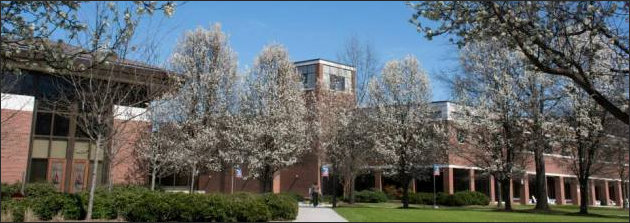
Virginia Wesleyan College is expanding. To what purpose? That’s unclear.
Norfolk’s Virginia Wesleyan College will become Virginia Wesleyan University later this year, reports the Virginian-Pilot. In the face of stagnant college enrollments nationally, the small, private liberal-arts institution is boldly expanding, adding two new graduate programs, a new online division and an honors college program.
What is driving this change? The Pilot has little to say beyond this quote from President Scott Miller: “It is our desire to grow the institution for one, and to be more of a local institution with a national reputation.”
“We are sleepy no more,” Miller told WAVY-TV. “It comes down to complexity of the institution, the mission and purpose and we have become a comprehensive institution in recent years.”
The college website has little else to offer by way of explanation. Look at the strategic plan, “Vision 2020: Pathway to Prominence,” and you’ll read a lot of airy rhetoric about “providing a transformational experience for students” and “preparing students for a meaningful life and career.” The plan illuminates such lofty goals as experiential learning, innovative teaching, student engagement, community connections and an inspiring sense of place.
That’s all very fine, but what’s the connection with new degree programs and online learning? And how does the rhetoric square with Miller’s desire to change Virginia Wesleyan from a “sleepy” local institution to one with a “national reputation” — in effect to bolster its prestige.
A small college with a $60 million annual budget and $53 million endowment might have the resources to create enriching, transformational experiences for students or to create ambitious new programs and expand enrollment by 300 to 1,700, but does it have both? How does the addition of new programs serve the need of students? Has the university identified un-met needs in the educational marketplace, or is the expansion a ploy to upgrade its rankings? (At present, Virginia Wesleyan doesn’t even warrant a score in the U.S. News & World-Report best colleges ranking.)
Virginia Wesleyan is a private institution, so it is under no obligation to explain its actions to the public. Hopefully, though, the Board of Trustees, alumni, and philanthropists are asking tougher questions than the local media. Even a small liberal arts college is a terrible thing to waste.


